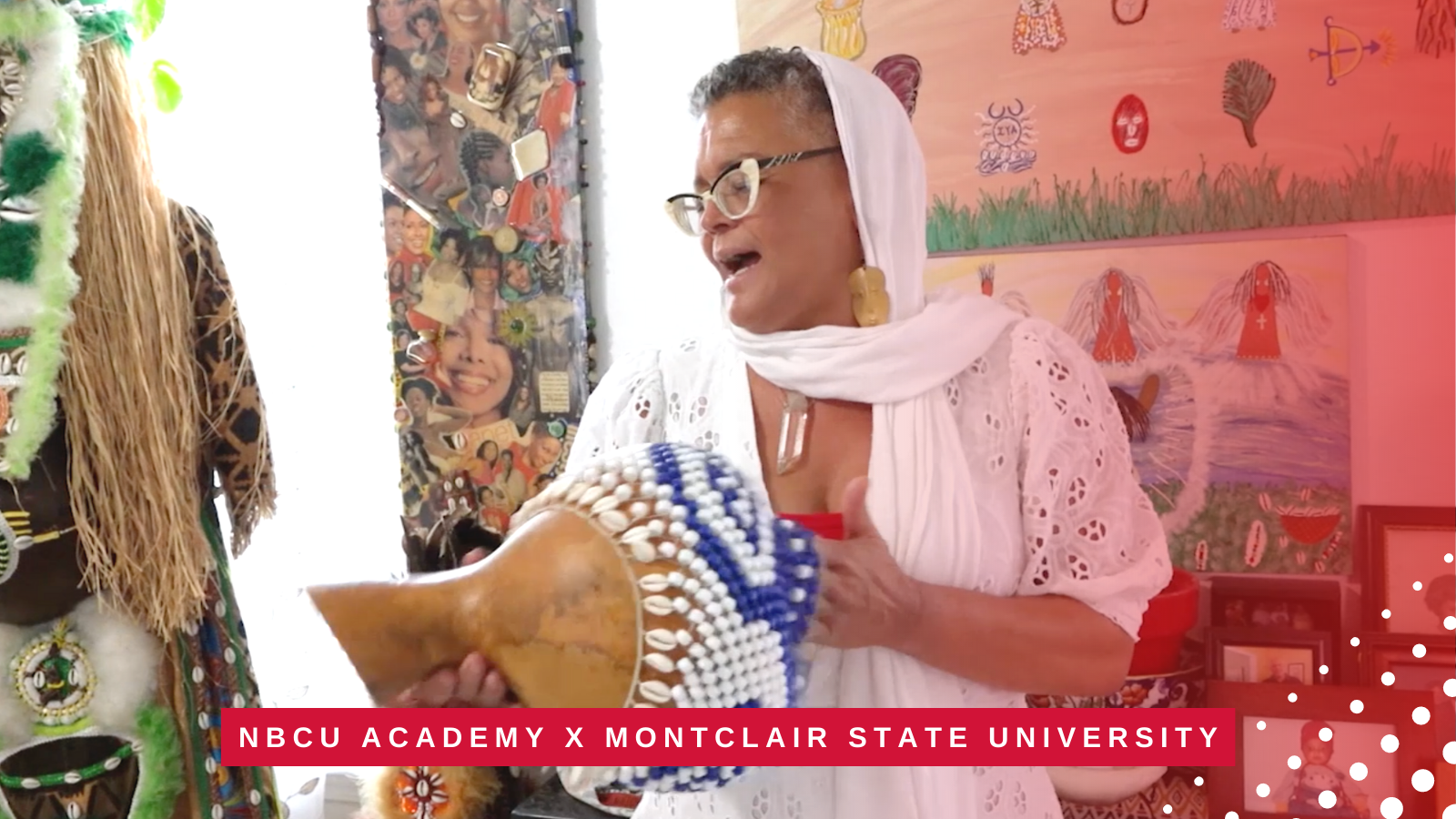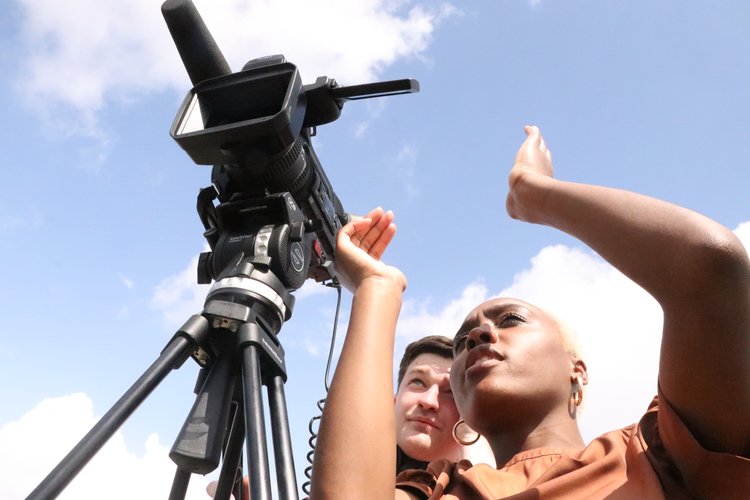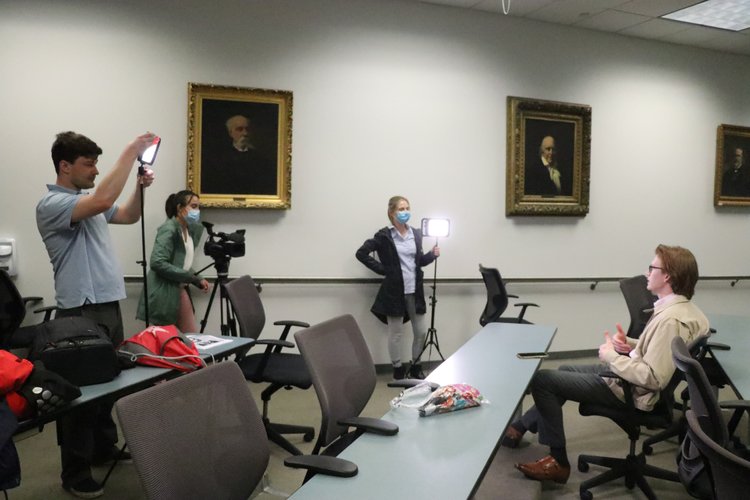
“Head of the Class” highlights original reporting and video from student journalists, in collaboration with NBCU Academy. The first in the series is Montclair State University’s “New Orleans: Raging Storms,” showing how climate change, racism and economic inequality have impacted the city since Hurricane Katrina.
_________________
When Montclair journalism students were planning a reporting trip for their project, “New Orleans: Raging Storms,” senior Talon Lauriello knew he wanted to work on a story that focused on the city’s deep ties to music. The result was a profile of the Musicians’ Village, a Habitat for Humanity project with the goal of creating affordable homes for musicians who had lost their residences in Hurricane Katrina. Below, Lauriello describes how the story came about.
I have been surrounded by music my whole life. My dad plays solo gigs, and I’ve worked as the audio guy for his band. That’s why it was so important to me to land a music story in New Orleans, one of the musical capitals of the world.
I reached out to music schools, museums and live performance venues, but nothing caught my eye more than The Musicians’ Village, which includes the Ellis Marsalis Center for Music, a school dedicated to teaching underprivileged kids music. I began my preproduction journey by calling the school and emailing its director. Of two potential interviewees named by the director, one was really eager: Fred Goodrich, a baritone vocalist and rhythm guitarist. Fred told me of two other Musicians’ Village residents, Sula Spirit and Margie Perez, who were happy to set up interviews.
On a Tuesday, my team of five students and a professor filmed an interview with Margie. Then we went across the street to interview Sula.
When we got there, Sula greeted us in a headdress and asked to perform a cleansing smoke ritual on the whole crew before entering her house. I was all for this, but some of my crew members refused and stayed outside. For those of us who went in, she made us delicious smoothies from herbs. During the interview, she talked all about her love for the spirit world and how it changed her life. Eventually, we talked about how all of this ties in with the village. I could have made an hour-long documentary just about her.
My next interview, with Fred, was two days later. One of my classmates said to me, “Do you really need this interview? You already have two good ones.” No one knew how awesome Fred was except me. It was hard to accurately convey his vibe, but I answered, “I need it, you’ll see why.”’
If music is Fred’s main form of income, then stand-up comedy should be his side hustle. Whenever he talked about anything, he acted it out at the same time, and on multiple occasions he had my crewmates laughing. After the shoot, they said to me, “Your piece just went from good to great,” and I said, “I know.”
This trip taught me how to work in a real production environment in a new place with a crew I didn’t know. We students started the trip as strangers, but that first night we began to become a team, and the bond only grew stronger. Many challenges were thrown our way, and we solved each one together. I’d go to bat for any one of these producers, and I hope they would do the same for me.





